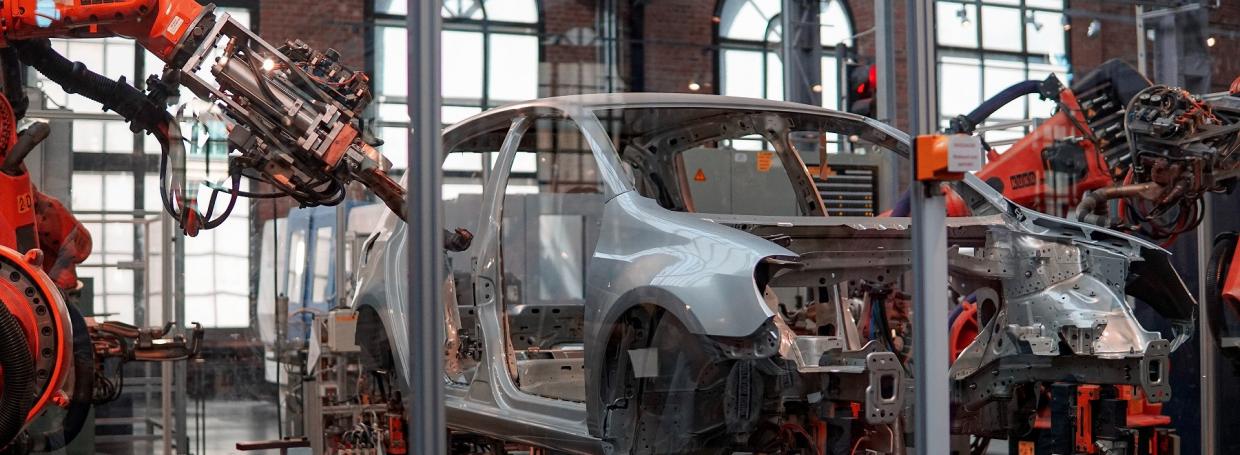Post-COVID | 4 Ways the Automotive Industry will Change

Post-COVID: 4 Ways the Automotive Industry Will Change
Reading time: 3 mins
The onset of the COVID-19 virus was particularly destructive for sectors such as F&B, aviation, electronics, and tourism among others. The automotive industry has also been badly affected with factories and car dealerships being forced to close, (as no one was driving during the lockdowns), supply chains disrupted and consumers delaying their purchase decisions.
This disruption in supply also means new car launches may likely be postponed and this will continue to impact the industry even once we’re in the clear of the virus. So, how are automakers responding to this shift in the industry? What will they invest in to redefine mobility in the future?
Before answering these questions, let’s take a look at how the COVID-19 pandemic will affect the automotive industry worldwide and in Singapore.
How will the automotive industry change post COVID-19?
1. Consolidation of Top Models
As we are well aware, the onslaught of the pandemic manifested in massive production halts, due to social distancing protocols and nationwide lockdowns. Governments all over the world enforced health and safety regulations, causing significant challenges in manufacturing for automakers.
And with these challenges come a reduced model range. The production of models – in particular, the number of hybrid vehicles – will likely slow down, and car models not meeting sales targets will most certainly be axed from the lineup.
Simply put, there’s not much point in manufacturing so many cars when the demand for it is low. What more with new technology such as electric cars? This issue will probably see automakers consolidating their top models across the categories (sedan, SUV, sports car, etc) to focus on the production of models that bring them the most profit.
2. Less Innovation
Car sales fluctuations and fierce market competition are also forcing automakers to reduce their investments, as the demand for most of their products are decreasing.
So, you can expect carmakers will have less cash to splash, which means comparatively fewer innovations. What this could mean is the next generation of cars will probably look very much like the ones we see now, perhaps except for some minor design changes.
3. Acceleration Towards Pay-As-You-Use Services
Before COVID-19, there was already a significant shift in the automotive industry to “pay-as-you-use” models. Post COVID-19, this shift will be accelerated as more and more consumers may want to avoid the added expense of owning an automobile.
Due to the collapse of the economy worldwide from the pandemic’s strong blow, and increase in living expenses, there has been a considerable change in the buying patterns of consumers. For one, even post-pandemic, purchasing a car would probably be the last thing on everyone’s mind. So, going forward, the automotive industry will likely offer other options to drive their vehicles in a more cost efficient way – such as car sharing – like GetGo and BlueSG that leases out electric cars only.
4. The Death of Motor shows/Exhibitions
Automakers have realised that carting their show cars to motor shows, paying for overpriced space at exhibitions and sharing airtime with hundreds of other car brands is not the best way to market their cars anymore.
Instead, what carmakers have done in recent years is to hold private unveilings to interested buyers and the media. So, they get to show off their cars to a curated pool of potential buyers and they’re guaranteed full share-of-voice with press coverage. Plus, automakers will be able to showcase their vehicles in a more convenient location.
What’s Next? — Digitalisation & Automation
No doubt that the automotive industry worldwide has been affected in its operating and manufacturing environments, post-pandemic. What car makers are focusing on for the future is the use of technology and digitalisation in vehicles. This shift towards electric and self-driving vehicles has also made it necessary for industry players to restructure their business model.
Indeed, the crisis has placed enormous pressure on automakers to cut costs and streamline measures across the entire automobile production chain. So, to stay competitive, automotive companies will need to focus on investments that make mobility smarter for the future.
For instance, advanced emerging technologies such as artificial intelligence (AI) is now a priority and embedding 5G telecommunications into vehicles is expected in the near future. Basically, automakers are integrating smart, connected technologies rapidly into their current models — in both electric vehicles (EVs) and traditional internal combustion engine vehicles — to mitigate the impact of the virus on the entire industry post COVID-19.
Adoption of these latest technologies and availing connected vehicles to drivers are likely to open up new income revenues for automakers in the years ahead too. As governments, such as in Singapore, advocate for changes in emission laws, automotive companies will most likely focus on creating a more cost-effective supply chain, with more intense research and development (R&D) programmes carried out, to set new mobility standards. For now, let’s hope the automotive industry will slowly recover from the effects of COVID-19 in the coming years.

